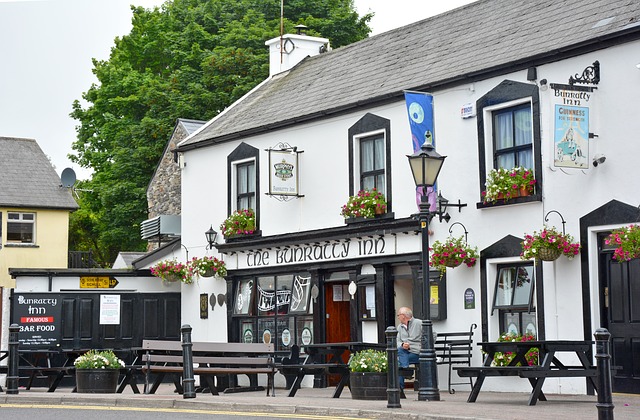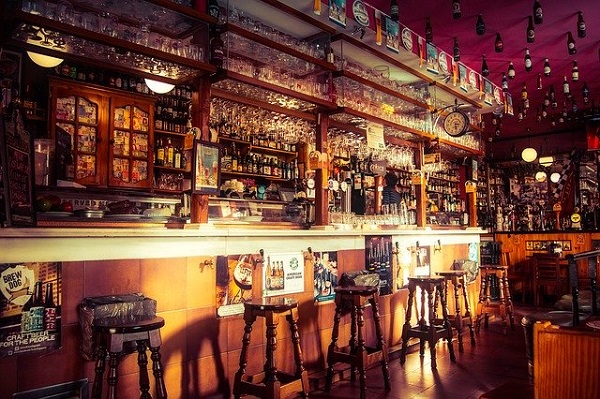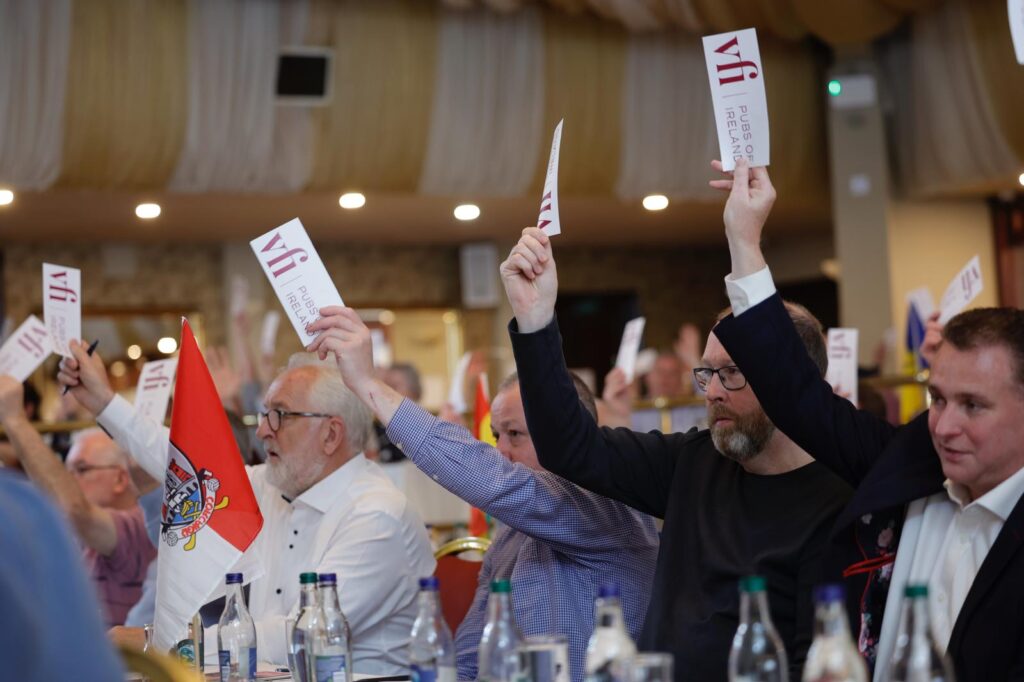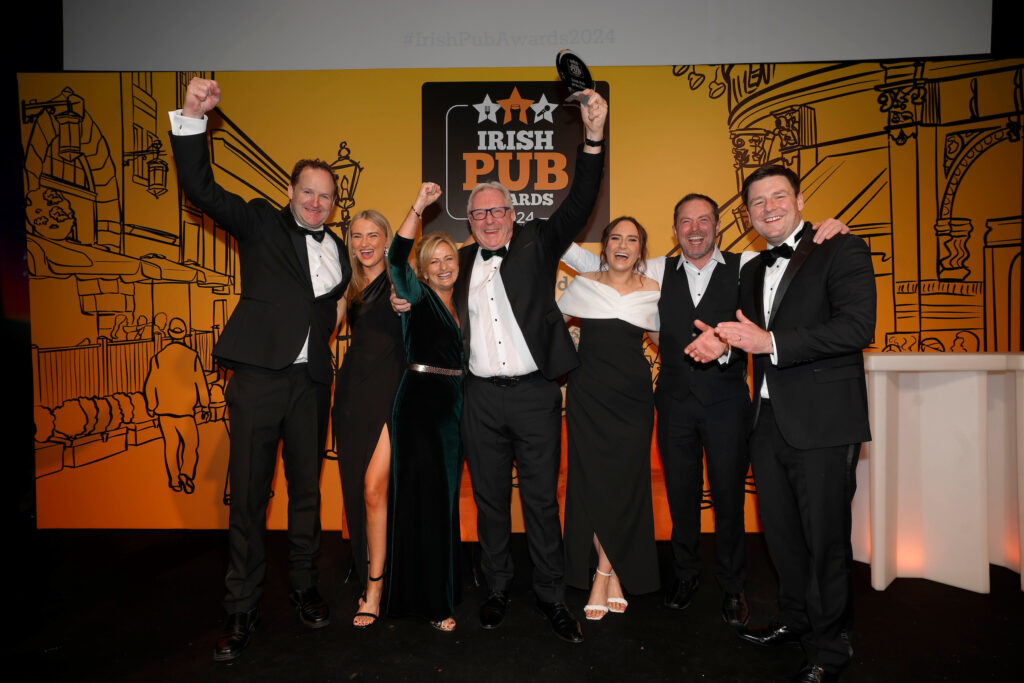A recent article from journalist Liam Collins of the Sunday Independent celebrates Ireland’s pub culture.
As Ireland’s pubs closed, the realisation of just how much some of us love them became very apparent, writes Liam Collins. There I was, last Sunday, sitting outside the Blue Light having a quiet pint looking at the panorama of the city below after a tramp across the mountain. Then word came through that the pubs were closing and a lifelong love affair was coming to a dramatic, if temporary, halt.

Looking at the shifting shadows over Dublin Bay, Howth and beyond, all I could contemplate was my semi-dissolute past and the part the pub plays in the Irish psyche, from celebrations and funerals to giving directions via well-known pubs to the lost traveller.
Some may think it’s sad that so much of one’s life revolves around the pub: a walk in the Dublin Mountains inevitably ends up in the Blue Light, an afternoon cycle with a pint in Finnegan’s of Dalkey, a late Sunday afternoon drink in the convivial Conways of Blackrock.
What makes it such a pleasure is that while a drink is intrinsic to the experience, it is not the sole purpose. It’s the familiar faces, a chat with the barman or the proprietor, a bit of news or gossip and the choice of joining in the national conversation or retreating to the back bar or a table outside to read the paper or contemplate the day.
It can be a communal or solitary pursuit, depending on one’s inclination at a given time.
As the lights began to twinkle in the dusk, distant memories of bars and occasions of indulgence and over-indulgence began to ebb and flow through my mind as random thoughts. They didn’t start with my first pint in Fitzharris’s in Ringsend, or end with a pleasant lunch in Finnegan’s recently with Noel V Ginnity and Donal Branigan.
At around the age of 15, I was packed off to Mullingar to work for a month of the summer with my uncle and aunt, who owned The Ennell Bar in Austin Friars Street. It was a newly built, carpeted ‘lounge bar’ with leatherette seats and not the type of place I’d be inclined to frequent in the years that followed, after becoming something of a connoisseur of old-style bars with character and the patina of age.
What I did find there, even though I didn’t drink, was the conviviality of the pub: the old characters that wandered in for a bit of company and a few bottles of stout in the early afternoon and treated you like an adult. The patients from what we called ‘The Mental Hospital’ allowed out to work at petrol pumps and other similar tasks who called into the bar for a drink on a Saturday. “You’d be mad not to be in there,” one of the unfortunates told me.
At the other side, in the lounge, were the nurses from the same hospital and some of the many musicians who plied their trade in the town.
It was the late 1960s and when I wandered up the town looking for a pint of Cidona that hot summer, I found an old, empty pub on the edge of the square called Canton Casey’s, where a few drinkers huddled in desultory silence.
“Why would you go into that auld place?” my uncle asked me when I told him. But I knew I’d found what I was looking for – an old wooden bar, wide plank floors and an atmosphere that transported me back to Victorian times.
Some time later, I read Joseph Mitchell’s book, McSorley’s Wonderful Saloon – based on a pub near The Bowery in New York and originally called ‘The Old House at Home’ – and I knew that, given the choice, these were the kind of places I wanted to frequent.
But a good bar is about more than appearance. Working in the Longford News, I was soon drinking in Eamon Farrell’s in Earl Street, because there was always somebody there and they was always going to be a football match or a dance in Rooskey. One Friday afternoon, I remember setting off randomly with Paul Reilly, Willie Farrell and John Lee to go somewhere different for a drink and having our last pint sitting outside Paddy Bawn Brosnan’s pub in Dingle, without any idea of why we were there.
When I arrived in Dublin to work on the Evening Herald, there was a clear segregation among reporters and journalists. The Independent crowd inhabited The Oval Bar, with its cartoons of hard-drinking newspaper men and women by Bobby Pyke; the Press people drank in Mulligan’s of Poolbeg Street; and the Irish Times hacks in Bowe’s.
Then there was a rolling maul of semi-neutral places where we mixed, The Horse and Tram on Eden Quay, The White Horse across the river, and the long-gone Scotch House, also on the quays, where you might see Myles na gCopaleen having his first of the day around 11am, after he escaped through a window of his office in the Custom House.
Then there were the pubs where people decamped when they were barred from their regular haunts. Part of the crowd in The Oval would migrate to Higgins’s or The Bachelor Inn, which had an eclectic mix of journalists and respecters of a good pint of stout.
An old drinking buddy of mine, Paddy Murray, had a rule of thumb in The Bach that if you went over three pints, then you were out for the night and there was no telling where it would end or at what time – sometimes it could be a trendy club on Leeson Street or the disreputable surroundings of the Irish Times Club, a dingy den on the top floor of a building in Fleet Street, where printers and reporters drank until dawn.
Thankfully the concept of binge drinking hadn’t been invented. For me, a few pints after work on a Friday was one of the highlights of the week and one of the lowlights for my wife waiting at home. Of course it was mostly ‘shop-talk’ but as the financier Dermot Desmond, a one-time regular in Scruffy Murphy’s, once said, it is only your colleagues in work who understand the highs and lows, the triumphs and disappointments of the working week. No matter how close you are to other people, they just don’t get that. The writer Brendan Behan neatly differentiated the class system in pubs when he said: “Work is the curse of the drinking classes.”
Most decent pubs had professional and amateur drinkers. How the professionals survived was always a source of amazement, but somehow they had different strategies for conjuring up the price of a round. In the bar of O’Dwyers of Kilmacud, one of them even had a little cupboard for his stool so that strangers couldn’t sit in his ‘spot’.
Some people, such as artists, writers and musicians, managed to straddle both the professional and amateur drinking classes. And journalists, politicians, gardai and barristers probably combined work and drink most successfully. Having a pint together was considered work on the basis that sharing a couple of rounds would eventually pay dividends for all concerned with a story, publicity or some spicy information.
Of course, the best nights in the pub are always the spontaneous ones. You go in for ‘the one’ and some unexpected spark lights up the night. It can be bumping into old friends or colleagues, singing with departing ones until 4am (as with our old pal Brian Farrell in the much-lamented Kiely’s of Lower Abbey Street), or just accidental encounters like the launch of Bringing It All Back Home, one of the many monumental nights in Kitty O’Shea’s of Grand Canal Street.
For someone who likes a pint standing at a bar, any bar, I don’t really have ‘a local’ – once almost as socially identifying as where you went to school. I enjoy Kehoes or nearby Davy Byrne’s or The Swan in Dublin, Collins’ in Limerick or Gunnings in Rathconrath. But this is not about great pubs, there are just too many of them, and anyway it’s a very personal preference. It was only when they closed last Monday that the sharp realisation of just how much some of us love them became apparent.
Of course, for some people, the sweetest pint was always the illicit one, after hours or during the Holy Hour or on Good Friday when it was illegal. Is there a chance that ‘shebeen’ drinking dens will now fill the vacuum caused by pubs closing their doors? We hope not, this is something we have to ride-out.
When they do re-open, it will be just like encountering an old friend we didn’t really appreciate until they disappeared from our lives.


